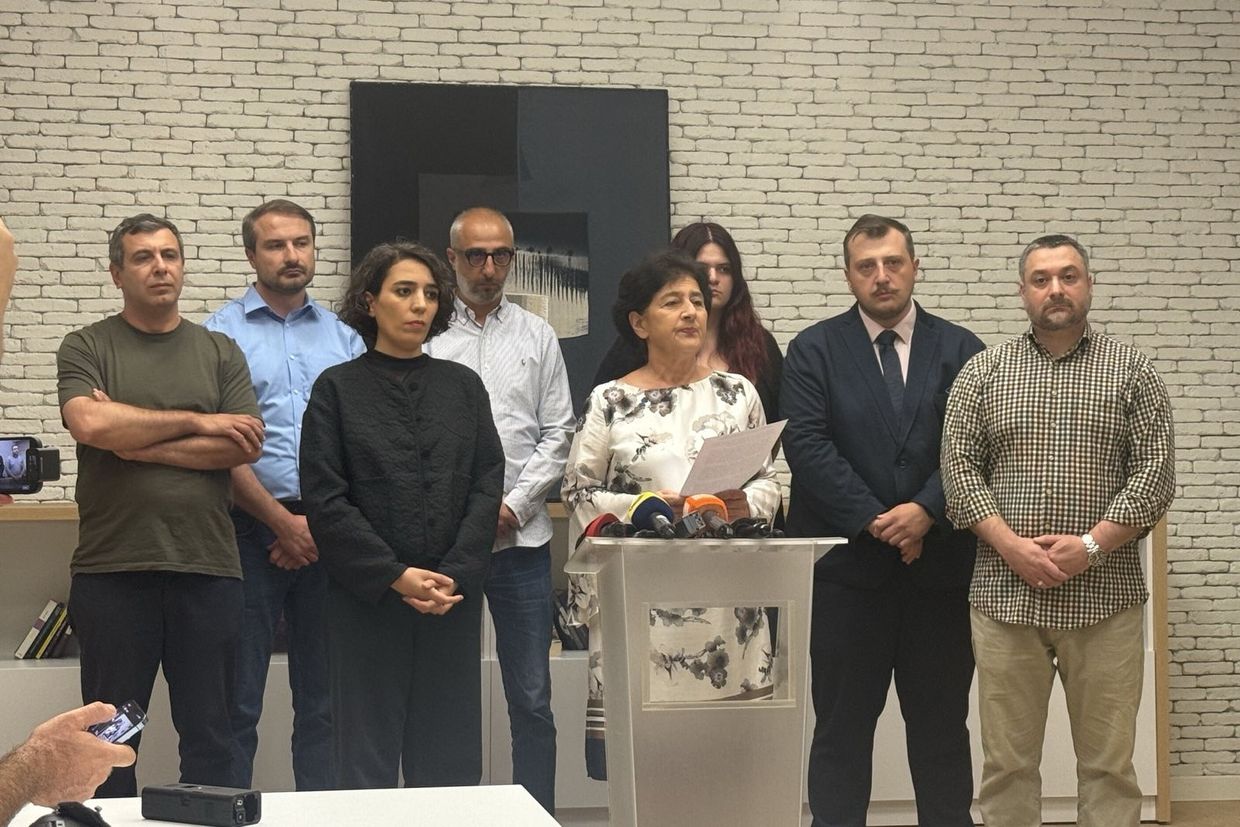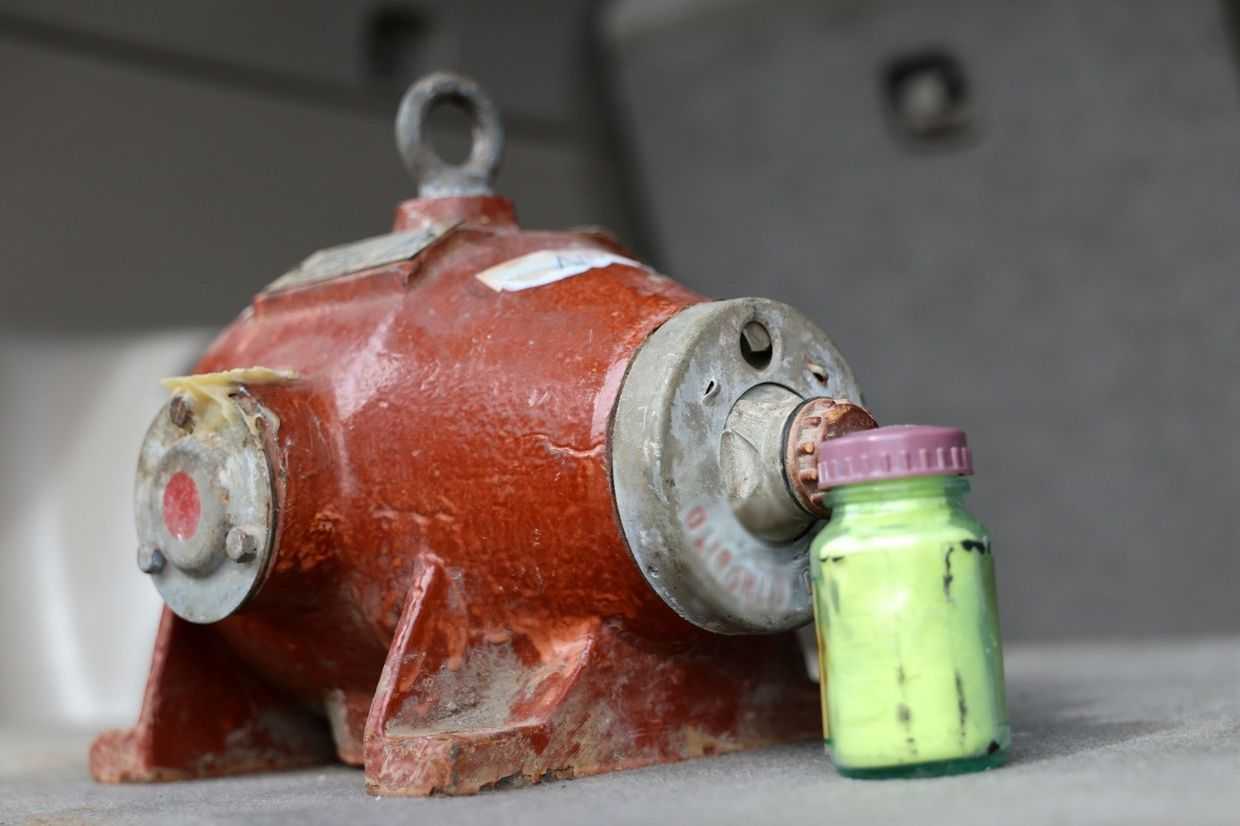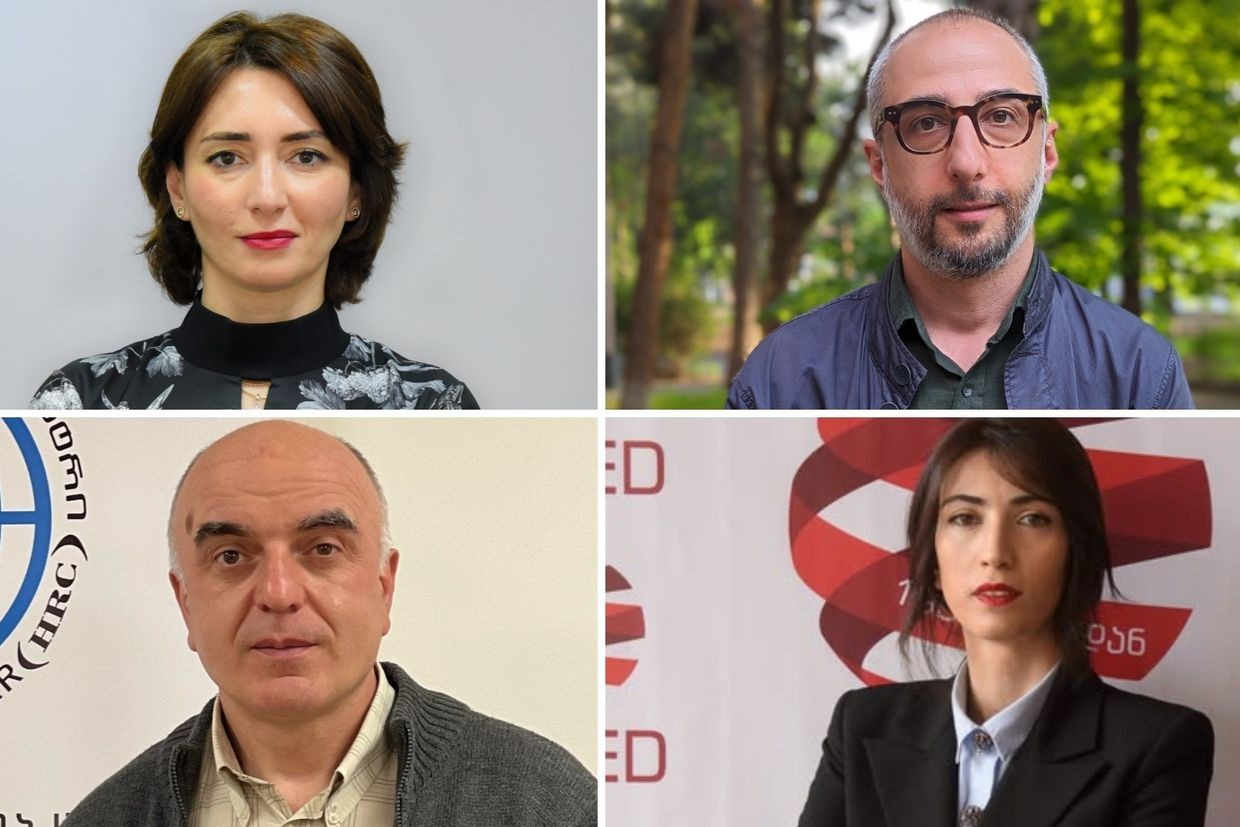
The Prosecutor General’s Office of Georgia has continued questioning heads of civil society organisations as part of a case in which the investigation accused numerous leading NGOs of facilitating violence. Their accounts have been frozen since August.
The questions posed by the prosecutors have focused on the organisation’s activities and finances, as well as their involvement in anti-government protests and social media posts.
The latest individual questioned by prosecutors at Tbilisi City Court was Eka Gigauri, the head of Transparency International (TI) Georgia.
According to TI Georgia, Gigauri was asked about money she transferred to help citizens who had been fined during the protests, as well as the purchase of ‘a few raincoats’ and two megaphones for a pro-EU public actions and her attendance at anti-government demonstrations.
TI Georgia further reported that prosecutors questioned Gigauri about a post she made on X concerning restrictive laws adopted by Georgian Dream and the establishment of what she called ‘Russian-style governance’. They also asked about her personal stance on imposing international individual sanctions against Georgian Dream representatives, and about the statements she delivered at a bipartisan US Senate hearing in 2024.
The summons was preceded by the freezing of the bank accounts of seven organisations by the Prosecutor General’s Office on 27 August. The prosecution claimed that the NGOs had used their funds to facilitate violence in the early phase of the daily anti-government protests that began after the government’s EU U-turn on 28 November.
Among those targeted are leading civil society groups, including the International Society for Fair Elections and Democracy (ISFED), the Civil Society Foundation, the Institute for Development of Freedom of Information (IDFI), the Social Justice Centre (SJC), and Sapari. The accounts of the Georgian Democratic Initiative (GDI) and Democracy Defenders were also frozen.
‘It is clear that this is yet another attempt to intimidate representatives of civil society’, Gigauri said after leaving the questioning. Her organisation was not among those whose accounts were frozen, but investigators nevertheless showed interest in their activities.
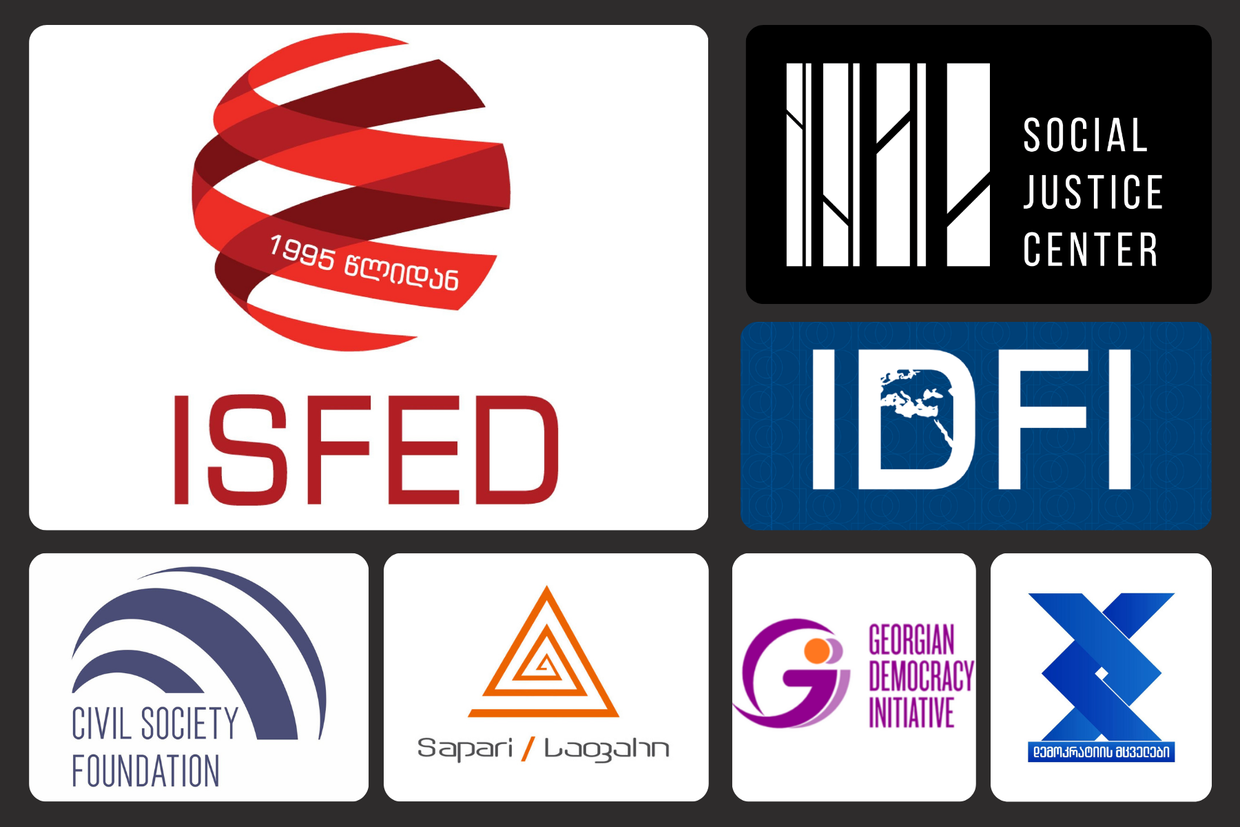
Among those questioned was also Giorgi Mshvenieradze, head of the group Democracy Defenders. He said prosecutors asked him about his personal Facebook posts, as well as about who the ‘organiser’ of the protests was.
‘I named the organiser: it is [Prime Minister] Irakli Kobakhidze, who, through his own statement on 28 November, effectively mobilised the entire country and ensured that people took to the streets to defend Georgia’s European future’, Mshvenieradze said.
He added that prosecutors also asked about his organisation’s procurement documents.
‘I shared the information I had, but there was not a single document showing that anything illegal had been purchased by anyone’, he said.
Nino Dolidze, former head of ISFED, was questioned as well. She said she was asked whether her organisation had been involved in organising the protests and ‘whether it had any connection to violence’. According to her, the questions also concerned the ISFED’s procurements and her own statements.
Aleko Tsikitishvili, head of the Human Rights Centre (HRC), also appeared in court. Like TI Georgia, his organisation’s accounts were not frozen by the Prosecutor General’s Office, yet he was still summoned for questioning, which reinforced Tskitishvili’s view that the investigation’s target is not only the seven organisations, but civil society as a whole.
‘This case concerns everyone indiscriminately, and its purpose is to halt the activities of civil society organisations, to intensify repressions, which in some cases may end in arrests — a purely Russian scenario’, he said.
The ‘face masks case’
The targeting of the civil society groups is part of a broader case involving charges of sabotage, attempted sabotage, and aiding and abetting hostile activities. The investigation was initiated in February, following a request submitted by a pro-government group, and has affected a wide spectrum of government critics.
The criminal charges on which the investigation is based carry long prison sentences.
Shortly after the organisations’ accounts were frozen, the pro-government TV Imedi published the NGOs’ procurement documents as ‘evidence of facilitating violence’ on their part.
For example, according to Imedi, GDI bought 20 masks of different types, five pairs of goggles, and 12 waterproof jackets; SJC purchased 35 bandages, the same amount of pepper spray, rubbing alcohol, and adhesive bandages, among other items; IDFI acquired 10 protective masks; and ISFED bought 18 respirators and 20 protective goggles.
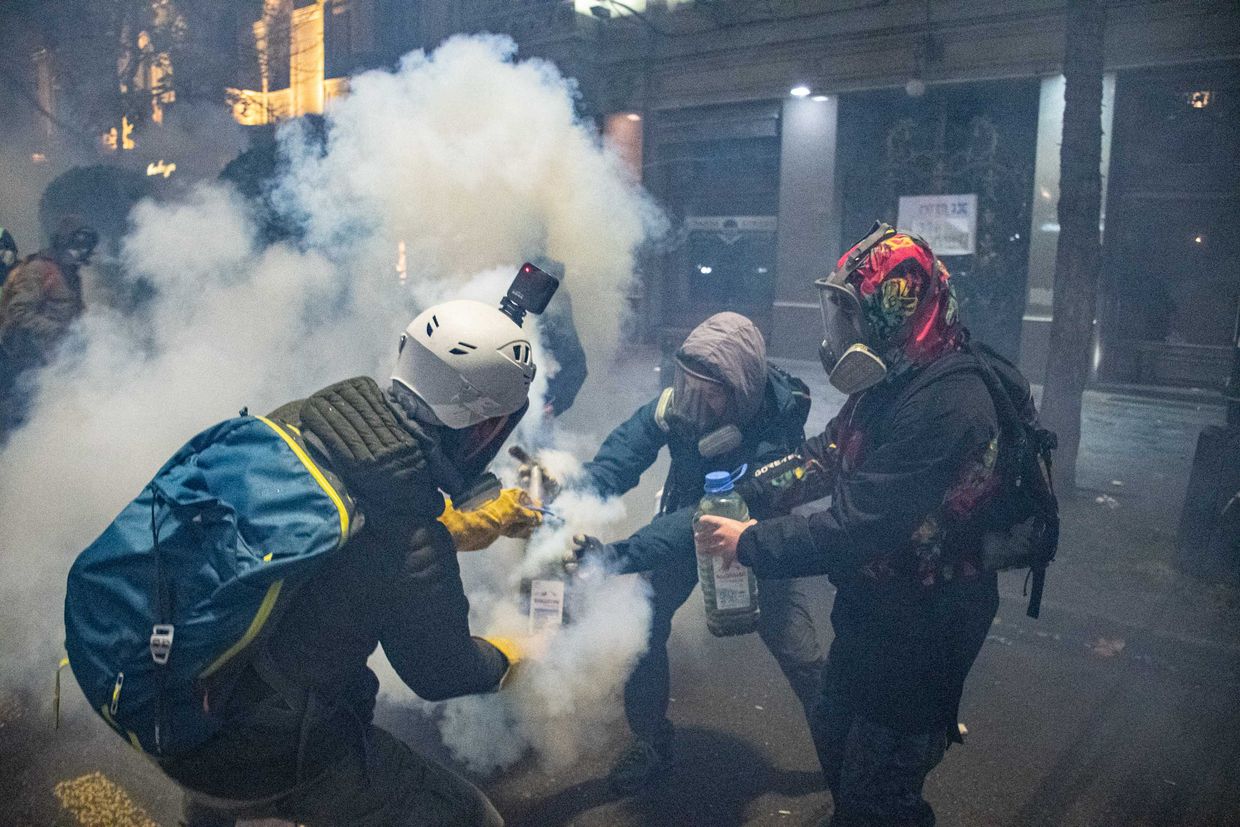
In their responses, civil society representatives not only dismissed allegations of violence by the Prosecutor General’s Office as unfounded, but also drew attention to the number of items displayed by Imedi — hardly enough for the tens of thousands of people who participated in the protests during their early phase, amid heavy clashes and police violence.
Some of them said the protective equipment was intended for their staff, while the Civil Society Fund noted that the equipment was purchased for journalists to safely cover the protests.
Government critics also mocked the quantity of items that, according to the state, the NGOs used to facilitate violence. Critical media even gave the case an alternative name: the ‘face masks case’.
However, what seems absurd to critics is still being defended by the Prosecutor General’s Office.
According to prosecutor Ani Khubejishvili, ‘any item has significance [...] when we talk about the type of actions we observed during the protests’, including ‘the use of incendiary and explosive materials, including to harm police officers’.
The first phase of demonstrations, which the case is focused on, saw heavy clashes and brutal police violence against protesters and journalists.
Hundreds of demonstrators have been detained since November, with criminal cases launched against over 50. Several protesters have already been convicted and sentenced to years in prison.
Georgian Dream’s campaign against NGOs
The Georgian government’s policy toward civil society organisations has become particularly hostile over the past two years, alongside its adoption of a series of restrictive laws.
The adoption of these laws has accelerated over the past eight months, against the backdrop of anti-government demonstrations, the first phase of which saw heavy clashes and brutal police violence against protesters and journalists.
Of the seven NGOs whose accounts were frozen, four — ISFED, SJC, Sapari, and the Civil Society Foundation — had already been singled out under the ruling party’s Foreign Agents Registration Act (FARA). The Anti-Corruption Bureau launched inspections of these groups, along with three others, in mid-August, citing possible violations of FARA.
Georgian Dream has repeatedly claimed that these measures were necessary to fight the ‘influence of external powers’. Nonetheless, critics of the ruling party have insisted that the state actions aim to undermine the media and civil society in an already fragile democracy.
